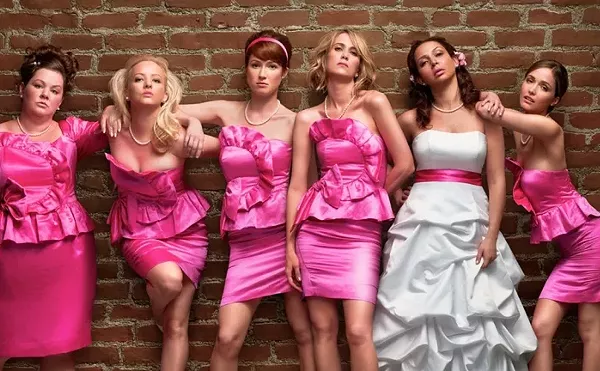Mack & Mabel purports to tell the story of the confused and conflicted love between Mack Sennett, impresario of the early comic silent movies, and Mabel Normand, the young woman he discovered and made a star. I'd read that the musical has a brilliant score and a piss-poor book, and Vintage Theatre's production proves both to be true. The music is by Jerry Herman, who supposedly went through a dry period between Hello, Dolly! and Mame in the 1960s and 1983's La Cage Aux Folles. But the score for Mack & Mabel, which premiered in 1974, is one of his best and most sophisticated — even if the show itself flopped on Broadway.
Hearing the jouncy, infectious overture as you enter the theater (legendary skaters Torvill and Dean actually used this overture for one of their numbers), you feel as if you're entering one of those old-time movie palaces with ornate gold-and-red interiors and a busy-fingered pianist sitting to the side. In a heartfelt solo at the start, Mack extols the days when "Movies Were Movies": Sennett was notable for his insistence that he wanted to make people laugh, not create art, and Herman himself felt much the same way. The show is full of humorous, authentic musical touches and one brilliant, exciting number after another — all well performed by a troupe of accomplished singers and dancers. There's a terrific ditch-the-bum solo, "Wherever He Ain't" (think "I'm Gonna Wash That Man Right Outa My Hair," from South Pacific, and "Just You Wait," from My Fair Lady), sung by the jilted Mabel; the lyrical not-quite-a-love-song "I Won't Send Roses," in which Mack confesses his emotional inadequacy; "Look What's Happened to Mabel," an exuberant toe-tapping celebration; a wonderfully exultant diva song, "When Mabel Comes in the Room"; the bittersweet ballad "Time Heals Everything"; and the big, glitzy hoofer number, "Tap Your Troubles Away."
The real Mack and Mabel story was dark. Sennett was a dictatorial swine and Mabel a self-destructive drug addict. After the murder of one of her lovers, film director William Desmond Taylor, murderous rumors swirled around her, although she was never suspected of actual complicity. Michael Stewart's book tries to have it both ways — including the dark elements, but minimizing them. Mabel is every adorable spunky little ingenue of the period and behaves off-screen exactly like her screen alter ego (in life, Normand was a fairly powerful Hollywood presence and pretty smart). Sennett gets to sing an occasional self-reproachful lyric, but he stays grouchy throughout. The result is that you never care much about them or the relationship. No other character is presented as more than a cartoon outline — not Fatty Arbuckle (the center of a murderous scandal of his own) and not director Taylor, who's shown simply as an affected dandy.
The moments in which Sennett arrives at his most famous ideas — the rows of bathing beauties, the Keystone Kops, the pie-in-the-face routine — ought to carry more juice than they do. They're skillfully choreographed and well timed, but though they're interesting, they're not really that funny. The odd, on-the-edge quality of "Hit 'Em on the Head," in which Sennett and his backers sing enthusiastically about the thumps, bumps and falls of 1920s movie comedy, exemplifies the dark-light nature of the material: The melody is bright and fast, the lyrics mildly sadistic: "Break somebody's neck...make a wider gash...the heroine's behind is oh so ripe for bruising." There's no reason a musical shouldn't deliver complexity as well as entertainment, but that requires more psychological exploration than Stewart has attempted here.
The cast is solid. As Mack, Keegan Flaugh delivers his major numbers with aplomb and a big, pleasing voice. Rachelle Wood sings well and plays Mabel more or less purely for comedy, which works for the melodramatic movie scenes but is less effective when she's supposed to be heartbroken and sincere. None of the acting delivers enough warmth and depth to counter the thinness of the script — so it's a good thing the music does. Still, these songs might work better presented in concert on their own.












